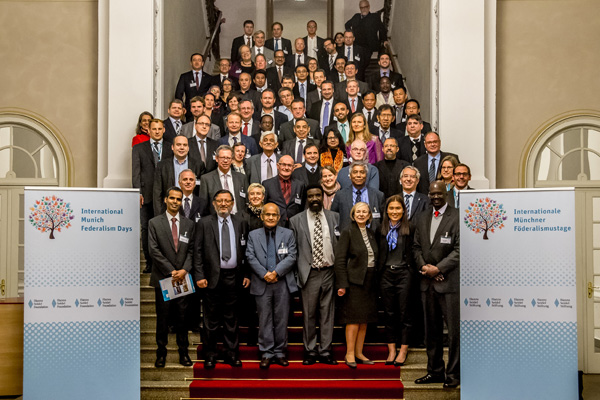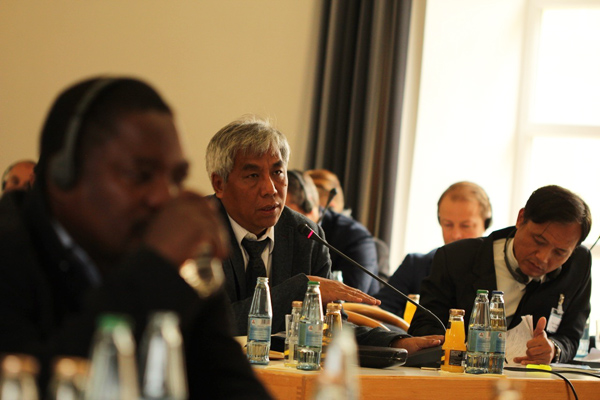Munich International Federalism Days 2016
Delegation from Myanmar attends the Munich International Federalism Days organized by HSF

Group photo of the conference participants
HSF
The conference provided the opportunity to discuss in global exchange, under which circumstances political reforms, aiming at establishing of federal structures and mechanisms, can be successful.
The Munich International Federalism Days were held from 29th February to 3rd March 2016 at the conference centre of Hanns Seidel Foundation’s Headquarters in Munich as well as at the educational centre of Hanns Seidel Foundation at the Banz Monastery, located in the valley of the River Main in Bavaria.
The Hanns Seidel Foundation Myanmar Office sent a delegation to participate in the conference and to share insights on matters and potential obstacles concerning federal reforms in Myanmar. The Myanmar delegation included members of civil society organizations as the Myanmar Institute for Democracy, the Centre for Development and Ethnic Studies and the Myanmar People Forum Working Group as well as representatives of the Karen National Union (KNU) and the Restoration Council of Shan State (RCSS). Both organisations represent ethnic minorities in Myanmar and have fought for more autonomy and a genuine federal state since decades. The KNU as well as the RCSS signed a Ceasefire Agreement with the Myanmar Military in October 2015 and negotiate with the Myanmar Government and Military about significant federal reforms in the country.

Dr Lian Sakhong, Director of the Centre for Development and Ethnic Studies during the discussion
HSF
The international conference discussed the experiences of different countries in regards to size, economic power and internal disputes and also addressed obstacles that limit the opportunities of regional self-determination, peaceful coexistence and economic growth through federalism. To establish an international and interdisciplinary exchange on how federalism can contribute to multi-level, integrated and pluralistic decision-making processes the participants were given the chance to attend different panels and discussions.
In this context Dr Lian Sakhong, Director of the Center for Development and Ethnic Studies, presented his analysis on how a federal structure in Myanmar could bring sustainable peace to the country and which obstacles have to be overcome in order to implement federal reforms.
